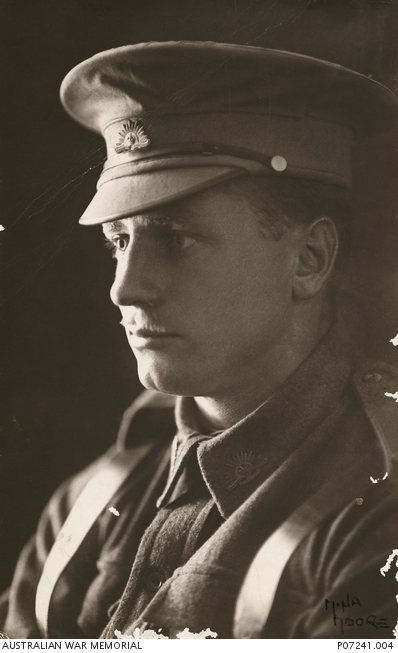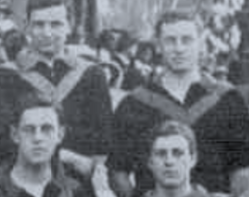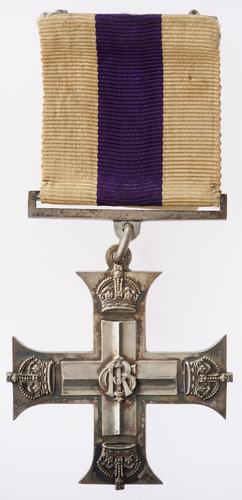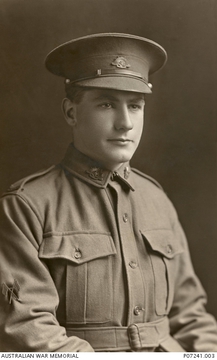ANZAC Day 2020, Auckland, New Zealand
Two brothers on my Grandmother’s side, Richard (known as Mac) and John (Jack) Gibbs, enlisted in the Australian Imperial Force during World War I. They were the sons of Richard (a general practitioner and surgeon) and Helen Gibbs (nee Maconochie, hence ‘Mac’) of Colac, Victoria.

Mac attended school in Colac before completing his secondary education in Melbourne. He then commenced a medical degree at Melbourne University. Mac was a keen sportsman, and played for University in the Victorian Football League, his first game being against Essendon in Round 1, 1912. The Argus newspaper reported of Mac that ‘…although yet only a boy, he marked and kicked so well that he gives great promise.’
Mac enlisted on May 10th 1915, joining the 6th Battalion. He embarked on HMAT (Her Majesty’s Australian Transport) Themistocles on 28th January 1916, a week before his 24th birthday.
After spending just under four months training in Egypt, where he was transferred to the 59th Battalion, Mac left the Middle East for France. The 59th were doomed to be a part of the battle of Fromelles, a feint attack designed to prevent the Germans reinforcing their positions on the Somme.
Mac, top-right, with Melbourne University

On the evening of July 19th, the 59th Battalion attacked the German lines opposite an elevated, concrete-reinforced machine gun position. Corporal Hugh Knyvett, who was on the Themistocles with Mac when it sailed from Australia, described the battlefield thus:
‘If you had gathered the stock of a thousand butcher-shops, cut it into small pieces and strewn it about, it would give you a faint conception of the shambles those trenches were.’

What happened to Mac was detailed in his Military Cross citation:
‘..when his Company Commander was seriously wounded immediately prior to the order to charge Lieut. Gibbs took charge and led his men over the parapet. By his example the men were spurred on, and although advancing under a galling machine gun and rifle fire he kept his men moving steadily forward in perfect line and order. Lieut. Gibb’s calm and collected manner gave his men the impulse necessary to carry them as far as it was possible to go.’
In a 24 disastrous hours, the Australians suffered 5533 casualties. Of these, nearly 2000 were dead. Of these, one of them was Mac.
Jack Gibbs’ war followed a different path to his older brother’s, but ended no less tragically.

Jack finished secondary school in Melbourne, with one source indicating he also commenced studies in medicine prior to enlisting in the AIF.
Jack was 18 years old when he embarked with the 5th Battalion on 17th April, 1915 aboard the HMAT Hororata. A sniper, he served with the 5th at Gallipoli, where he developed what is reported by one source as ‘enteritis’ and by another as a ‘chest illness’. Seriously ill, Jack was evacuated to Egypt. He was later moved to London where he was employed in the Army Pay Office.

Whilst in London Jack met, and was later engaged to, an English girl. However he fell ill again, suffering a serious chest complaint. He was repatriated to Australia in mid 1917, where he received initial treatment for pulmonary tuberculosis in a military hospital. Jack was then returned to the family home in Colac and into the care of his father. Sadly he never recovered from his illness, passing away on 13th October, aged 20.
Setting aside the hackneyed phrases and worn cliches heard every Anzac Day, the 25th of April provides a reminder to reflect upon the personal tragedy and consequence of war. Stalin, a man responsible for human suffering on an unimaginable scale, said ‘One death is a tragedy, one million is a statistic’. Although the loss of life and incapacitation resulting from World War I is overwhelming, when this catastrophe is distilled down to the stories of individuals the humanity is again revealed. This is the case for my ancestors; two young men from Colac.
Today I will remember Mac and Jack.

For more on the Auckland War Memorial Museum click here
If you enjoyed this post, then you might also like Visiting Gallipoli, The Cemeteries of Gallipoli
Do you have a particular interest in World War I, II and the Cold War? Check out my other blog Ghosts of War. If you enjoy military history, and want to know what it’s like to visit both significant and lesser-known wartime locations today, there’s something there for you.
Leave a Reply